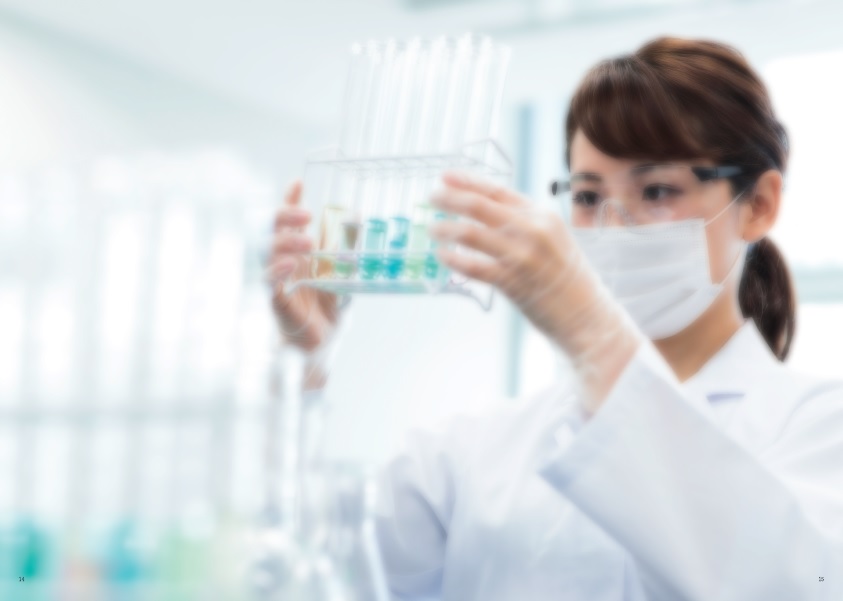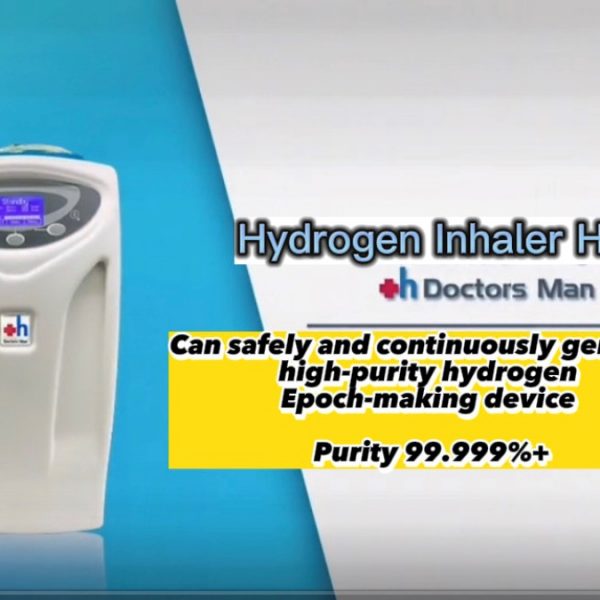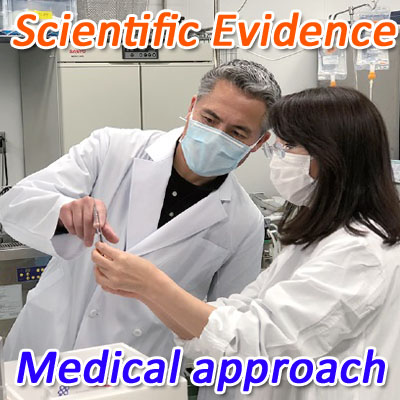HYDROGEN
SCIENCE
An objective viewpoint based on the verification results is indispensable when considering the efficacy of hydrogen.
So far, there have been more than 1500 reports released in the world on hydrogen effects. We hereby only introduce clinical trials.
List of research papers
- Hydrogen Therapy in Cancer Management:
- A Systematic Review of Molecular Hydrogen Therapy in Cancer Management. Main contents summary: Cancer remains a challenging target to cure, with present therapeutic methods unable to exhibit restorative outcomes without causing severe negative effects. Molecular hydrogen (H2) has been reported to be a promising adjunctive therapy for cancer treatment, having the capability to induce anti-proliferative, anti-oxidative, pro-apoptotic and anti-tumoural effects. This review summarises the findings from various articles on the mechanism, treatment outcomes, and overall effectiveness of H2 therapy on cancer management.
- H2 Inhibits the Formation of Neutrophil Extracellular Traps(Preclinical Research) :
- conducted by JACC: Basic to Translational Science in 2022. H2 therapy is potentially a new therapeutic strategy for inflammatory diseases involving NETs associated with excessive neutrophil activation.
- Interstitial Cystitis :
- conducted by Koshinkai Hosp. in 2008
- Impaired glucose tolerance and impaired fasting glycaemia:
- conducted by Digestive tract internal medicine, Kyoto Prefectural University of Medicine in 2008
- Mild cognitive impairment :
- conducted by Neuropsychiatry, Tsukuba Univ. in 2009
- Chronic hemodialysis :
- conducted by Nephrology, Fukushima Medical University in 2011
- Acute cerebral infarction :
- conducted by Neurosurgery, Self Defense Medical College in 2011
- Normal adults :
- conducted by Faculty of Health Science, kyorin Univ. in 2011
- Acute myocardial infarction :
- conducted by Cardiology, Keio Univ. in 2011
- Parkinson’s disease :
- conducted by Neurology, Juntendo Univ. in 2012
- Multiple system atrophy, Progressive supranuclear palsy :
- conducted by Neurology, Juntendo Univ. in 2012
- Parkinson’s disease :
- conducted by Neurology, Juntendo Univ. in 2013
- Chronic obstructive pulmonary disease :
- conducted by Respiratory Medicine, Juntendo Univ. in 2013
- Hepatitis and liver cirrhosis :
- conducted by Gastroenterology and Hepatology, Okayama Univ. in 2013
- Post cardiac arrest syndrome :
- conducted by Emergency and Critical care medicine, Keio Univ. in 2014
- Eye disease :
- conducted by Ophthalmology, Nippon Medical school in 2014
- Acute myocardial infarction :
- conducted by Cardiology, National Center for Global Health and Medicine in 2014
- Subarachnoid hemorrhage:
- conducted by Neurosurgery, Self Defense Medical College in 2014
- Lung transplantation:
- conducted by General thoracic surgery, Osaka Univ. in 2014
- Retinal artery occlusion:
- conducted by Ophthalmology, Nippon Medical school in 2014
- Type 2 diabetes mellitus:
- conducted by Tokyo Metropolitan Institute of Gerontology in 2015
Hydrogen treatment method was approved as Advanced Medicine B by the Ministry of Health, Labor and Welfare on November 30, 2016, which is promoted by Dr. Matoaki Sano (M.D., PhD. Director of The Center for Molecular Hydrogen Medicine, Keio University) et al.
The following two articles are written by Israeli professor Sergei M. Ostojic, MD, PhD.
University of Novi Sad · Department of Biomedical Sciences, Faculty of Sport and Physical Education
“HYDROGEN FOR METABOLIC FITNESS IN OVERWEIGHT WOMEN” (published in Irish Journal of Medical Science (1971-) 187, 85-89 (2018)) In this double blind, placebo-controlled trial, we found that hydrogen-generating minerals reduced body fat percentage and arm fat index in middle-aged overweight women; this was accompanied by a significant drop in serum triglycerides and fasting serum insulin after H2 administration.
The pilot study “HYDROGEN INHALATION IN ELDERLY” (published in European Geriatric Medicine.9, 729-730 (2018)) Short-term H2 inhalation positively affected the American Heart Association (AHA)
cardiovascular risk scores, health-related physical fitness, and cardiometabolic biomarkers in men and women aged 65 years or older.
Dr. Junji Akagi, Department of Surgery, Tamana Regional Health Medical Center, released the article “Hydrogen gas restores exhausted CD8T cells in patients with advanced colorectal cancer to improve prognosis” in 2018. The patients inhaled hydrogen gas for 3h/day at their own homes and received chemotherapy at the Tamana Regional Health Medical Center. The results suggested that hydrogen gas reverses imbalances toward PD‑1+ CD8+ T cells to provide an improved prognosis.
Dr. Junji Akagi and Dr. Hideo Baba PMID: 32994821 PMCID: PMC7509685 DOI: 10.3892/ol.2020.12121 clarified that hydrogen gas has been suggested to enhance the clinical efficacy of nivolumab by increasing CoQ10 (mitochondria) to reduce PDT+, with PDT+ and CoQ10 as reliable negative and positive biomarkers of nivolumab, respectively in the article “Hydrogen gas activates coenzyme Q10 to restore exhausted CD8 + T cells, especially PD-1 + Tim3 + terminal CD8 + T cells, leading to better nivolumab outcomes in patients with lung cancer”.
Hydrogen gas has been researched as a method for COVID-19 treatment. Fuxun Yang†, Ruiming Yue†, Xiaoxiu Luo, Rongan Liu* and Xiaobo Huang, Department of Critical Care Medicine, Sichuan Provincial People’s Hospital, Chengdu, released article “Hydrogen: A Potential New Adjuvant : Therapy for COVID-19 Patients” HYPOTHESIS AND THEORY doi:10.3389/fphar.2020.543718. Also Hydrogen and oxygen mixed gas as a therapy for COVID-19 Patients has been approved by FDA China, which had a significant impact in hydrogen medical field.






